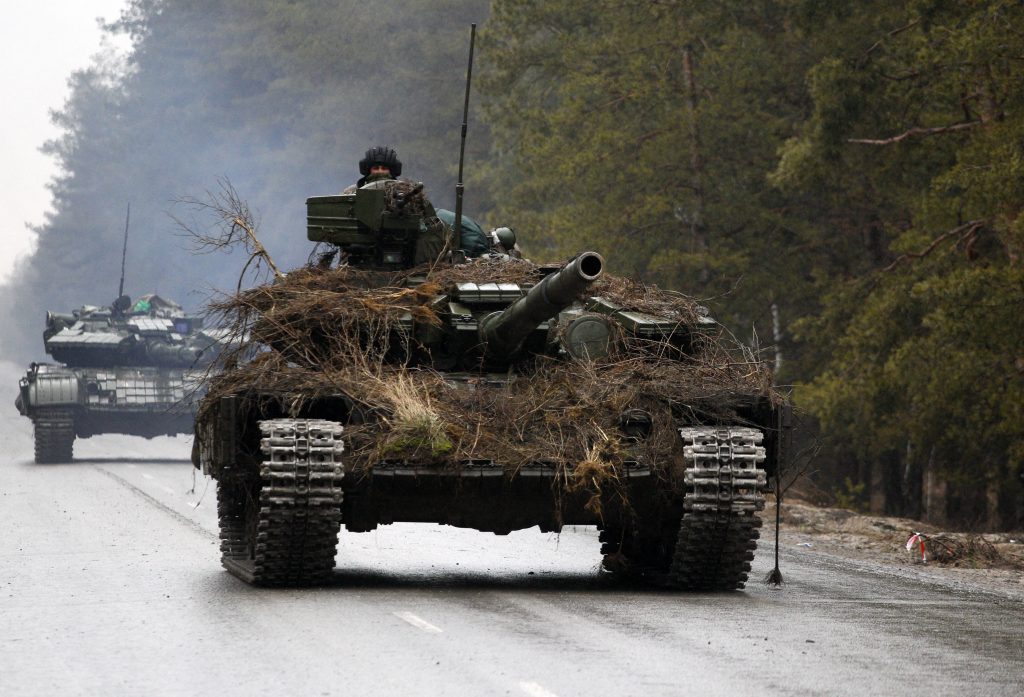The invasion of Ukraine by Russia is a dress rehearsal for more of the same around the world by authoritarian and autocratic regimes seeking to resurrect empires of the past. The invasion, from its preparation to its execution and to its eventual aftermath, will serve as a model for other invasions and effective annexations and re-drawings of borders.
There is a need to take all necessary measures and not exclude even military action to confront such aggression, so as to render the invasion of Ukraine a model not to emulate but to avoid. This would help pre-empt a cascading breakdown of the world order and avert the spread of war. It would actually also help contain the carnage that is currently under way in Ukraine.
Russia’s invasion of Ukraine is on its way to serving as a model for example for China eventually moving on democratic Taiwan on the pretext of it being a rebellious province of China that is increasingly subjected to “external intervention”.
It will also serve as a model for Turkey sooner or later invading and attempting to annex Greece’s eastern Aegean islands and Western Thrace on the pretext that Greece stations troops on its Aegean islands that are close to its highly aggressive neighbour or that Greece allegedly does not respect the rights of its Muslim minority in W. Thrace - NATO membership by both Greece and Turkey will not be a restraint for Turkey in the end.
And, of course, the invasion of Ukraine will serve as a model for further actions by Russia itself, for example against countries such as Georgia, or even former Warsaw pact members in central and northern Europe that have joined NATO as well as countries such as Finland. By virtue of such invasions, besides peace, liberty and prosperity, also liberal democracy and human rights will be on the block in various places around the globe.
‘Restoring empires’
The breaking down of restraints in satisfying raw imperial ambition is an enormous challenge for the United States and its allied liberal democracies, in Europe and elsewhere in the world, as sponsors of the system of explicit and implicit rules by which states have conducted themselves in the last 30 years. That system broadly worked, even if it arguably suffered from weaknesses in effectiveness and from various inconsistencies.
US President Biden in his speech on February 24, 2022, noted that “Putin’s actions betray his sinister vision for the future of our world — one where nations take what they want by force.” One must agree that this breaking down of restraint felt by states to take “what they want by force” will put the world on a much worse path. To address this danger, the US and its European and other allies need to confirm their authority, both in terms of power and morality, globally. This requires their focus on principles, consistency, commitment, unity and, also, bold action.
Sanctions are important and they must be imposed on aggressors; yet even the most stringent ones have limitations, especially when imposed on authoritarian and autocratic regimes. The sanctions announced by the US and the EU on Russia since the invasion of Ukraine began certainly look impressive and a step to be applauded. However, the costs of sanctions to authoritarian and autocratic rulers that subject their countries’ populations to significant repression and manipulation should not be overestimated. Actually, the costs of sanctions may pale in comparison to the legacy of ‘restoration of empire’ such rulers may want to leave behind. The sanctions may, perversely, even strengthen their hold on power.
The long term vision
In any event, sanctions are perceived by authoritarian and autocratic rulers as inherently fragmented and self-dissolving over a relatively short period of time. Authoritarian and autocratic rulers instead play for the long term and, given their hold on power, they can more easily than leaders in liberal democracies afford to do that.
Moreover, their perceptions tend to be right on account of a mindset of short-term commercial and generally parochial self-interest often displayed by many in the West. And, of course, those making decisions on keeping sanctions going would also be subject to the natural human behaviour of the ‘availability heuristic’, whereby one tends to heavily weigh in his/her judgments more recent experiences. Thus, authoritarian and autocratic rulers count on a ‘reset of relations’, for various reasons, sooner or later and a lifting of sanctions.
Thus, if the US and its EU and other allies declare a priori that they will not engage in a forceful way with military means in the case of the invasion of Ukraine, then there will not be adequate restraint for most authoritarian and autocratic leaders with ambitions of empire.
For example, there will not be adequate restraint, for Turkey’s President Erdogan to do to Greek and other territories what Russia’s President Putin does today with Ukraine, committed as the former is to resurrecting the Ottoman empire in the Eastern Mediterranean. Nor will there be adequate restraint for China’s Communist Party leadership to do the same to Taiwan and other territories in the eastern hemisphere as they strive to render China once more the Middle Kingdom.
Statements such as “Let me be clear … We have no intention of fighting Russia” by the US President in his February 24, 2022 speech, which take off the table the option of military action, may paradoxically lead with more certainty to the materialization of the “sinister vision for the future of our world — one where nations take what they want by force.” Such statements also do not help put a stop to the invasion of Ukraine under way.
Creating an EU army
In the context of the arguments above it is appropriate to recall that there is need for the EU to spend more on military defense. The decision of Germany on February 27, 2022 to significantly increase its defense budget is a positive sign. Hopefully other EU member states will follow suit and there will also be consistency and perseverance over time as the months and years pass following the invasion of Ukraine, especially given the need to catch up from years of under-spending in this critical area.
However, as has been argued before, there is also “a need in the EU for a standing and ready to fight Union army as a matter of urgency, operating under unitary defense and foreign policy. Otherwise, various faits accomplis will materialize, with parts of the Union being ‘picked off’ by predatory neighbours and with other strategic interests of the Union being compromised.
The EU will not be taken seriously and will be humiliated diplomatically and militarily by the likes of Russia and Turkey. Moreover, instability and war will ravage the neighbourhood around the EU, resulting in staggering human suffering there, as well as massive migration flows towards the EU and all sorts of economic and other costs for the member states.”
Unfortunately, yet one more time, the above costs of EU weakness in defense are rapidly materializing with the invasion of Ukraine by Russia. This weakness has to be addressed as a matter of high priority.
In conclusion, there are risks in using appropriate military action to confront aggression “where nations take what they want by force”, but the risks are arguably higher from a cascading breakdown of the world order. There are no easy choices here.
There can be costs from courageously thwarting upfront the adverse incentives being created by Russia’s overrunning Ukraine, but there is no ‘free lunch’ in securing a rules-based, peaceful world order on the terms of liberal democracy. The option of military action has to stay on the table.


